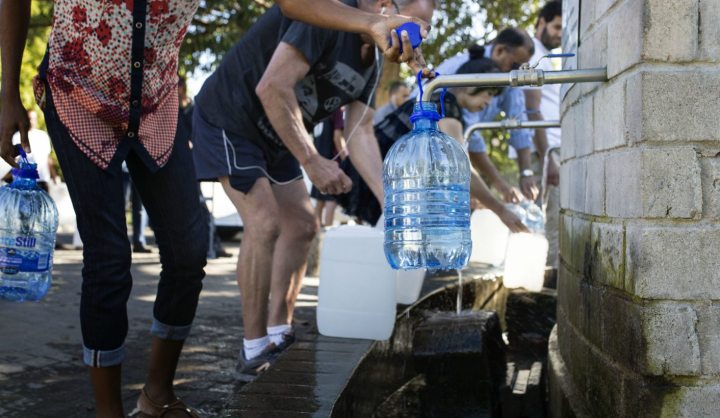South Africa
Letter to the Editor: Is Cape water crisis response really a triumph of reciprocity over selfishness?

Martine Visser and Johanna Bruhl’s op-ed about Capetonians’ response to the water crisis (2 March) does provide some indications regarding the triumph of reciprocity over selfishness. But the evidence and explanation given for the changes reflected on the maps and charts is not completely satisfying. By LARRY KIRSCH.
People tend to be more willing to suffer pain (as, for example, with reduced water consumption) for the common good if they believe the pain is fairly distributed among all members of the affected population.
Visser and Bruhl in their op-ed point out that wealthier households in Cape Town have reduced their consumption of municipally supplied water in part by “moving partially off municipal supply, through drilling boreholes and well points, and investing in rainwater tanks”.
This suggests that the graph depicting the convergence of usage across incomes is somewhat misleading because it masks the fact that higher income residents may not actually be reducing their consumption levels so much as buying their way out of the shortage.
The question is how Capetonians regard this from a fairness perspective.
Second, people tend to comply with programmes such as water conservation if they feel the remedial approaches to be taken are well-designed and have a high probability of success. It seems fair, therefore, to ask how Capetonians actually feel about the likely result of the various investments and programmes now on the table.
Do they have confidence in them? I, for one, have been quite sceptical that the elements and totality of measures to be taken are coherent, timely, and designed for cost-effective success.
Third, I suspect people’s motivation to adopt conservation measures will depend on their assessment of the community’s ability to endure the rigours for as long as necessary.
If people are confident that adoption of water saving tips is feasible – maybe even a proud sign of civic valour – that is one thing. If, however, they are concerned, for example, that the risk of serious public health problems will rise in lock-step with the duration of the restrictions imposed on clean water supplies, that is quite another.
I’m thinking, for example, about the health hazards associated with trucking in and distributing water throughout the city for any length of time. Do we know whether this represents a latent concern within the community? DM
Larry Kirsch is an economist who lives in Portland, Oregon, and is a former Cape Town resident.
Photo: Cape Town residents fill up containers with fresh water from the Newlands Spring in January 2018. Photo: Leila Dougan


















